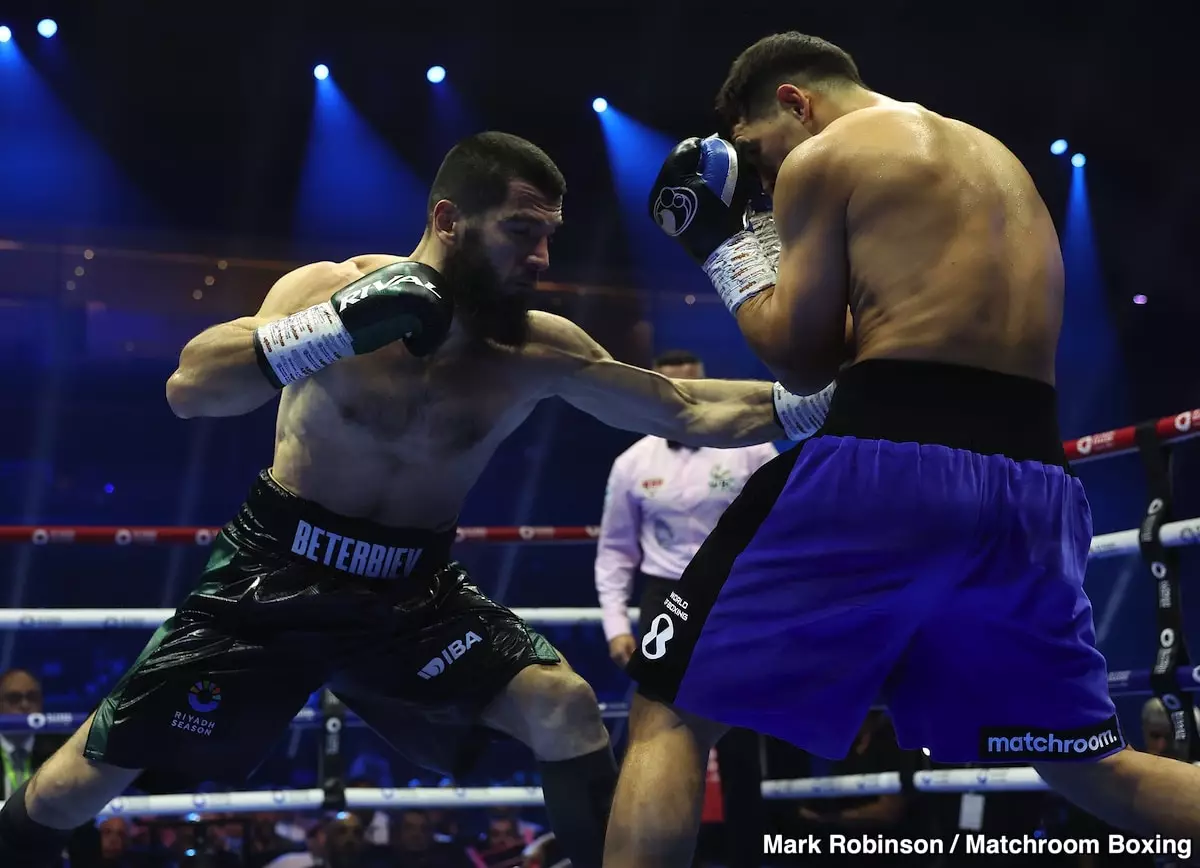Dmitry Bivol’s recent bout against Artur Beterbiev has sparked a fervent conversation within the boxing community. Their fight, held on October 12th, resulted in a narrow majority decision loss for Bivol, whose record now stands at 23 wins and only one loss. The match showcased Beterbiev’s relentless pressure and formidable power, traits that undoubtedly contributed to the judges’ leaning in favor of the undisputed light heavyweight champion. Bivol’s performance, marked by a defensive strategy that involved excessive movement and clinching, has raised questions about his approach and what adjustments he will need to make in order to seize victory in their upcoming rematch set for February 22nd in Riyadh, Saudi Arabia.
In the first fight, Bivol’s strategy was one of evasion rather than engagement. This approach, while skillful on the defensive front, led to perceptions of timidity, leaving Beterbiev with the opportunity to dictate the tempo and format of the fight. Bivol’s unwillingness to engage resulted in a lack of decisive scoring opportunities, ultimately disadvantaging him when the scorecards were read. As he contemplates the rematch, the question lingers: can Bivol effectively transition to a more aggressive fighting style? While Bivol has acknowledged the need for increased output, the challenge remains significant. He must balance aggression with his natural instinct for defense to avoid being overwhelmed by Beterbiev’s well-known knockout power.
Bivol has publicly committed to enhancing every aspect of his repertoire in preparation for the rematch. “I will work harder to be better,” he claimed, reflecting a determined mindset. He recognizes the need for a more dynamic and potent striking capability but admits that refining a powerful punch is a process—one he must navigate adeptly if he seeks to genuinely challenge the champion. However, transitioning to a more aggressive style at this stage in his career, especially at the age of 34, raises concerns regarding his adaptability and willingness to take risks in the ring.
There is also a mental and emotional facet to Bivol’s preparations. He has always described a certain thrill in overcoming challenges, which suggests a resilient mindset. Yet, there is a fine line between confidence and recklessness. For Bivol, the real test will be how he confronts the pressure that comes with avenging a loss, especially against an opponent who has proven to be formidable. As he seeks retribution, his ability to stay composed while executing a more aggressive game plan may very well determine the fight’s outcome.
Dmitry Bivol’s rematch against Artur Beterbiev is not just a personal vendetta but a pivotal moment that could define his career. The stakes are high, and every training session will be crucial in shaping the fighter he needs to become to reclaim his standing in the light heavyweight division. With the clock ticking and adjustments required both strategically and mentally, the anticipation builds for a showdown that is sure to capture the attention of boxing enthusiasts worldwide. Bivol’s determination to avenge his loss may well be the catalyst for a remarkable turnaround in his career.

